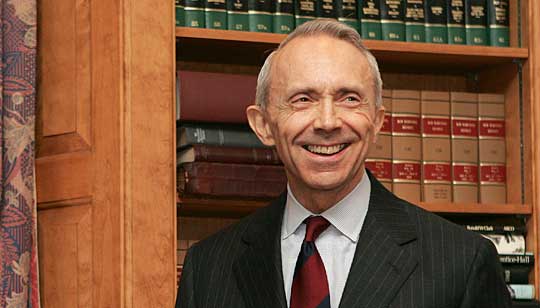
“At 69, Souter is nowhere near the oldest member of the court, but he has made clear to friends for some time now that he wanted to leave Washington, a city he has never liked, and return to his native New Hampshire.” Is Justice Souter retiring after this Supreme Court term? NPR seems to think so. I’d prefer it was Scalia’s time to go, of course…but oh well. “Souter, though appointed by the first President Bush, generally votes with the more liberal members of the court, a group of four that is in a rather consistent minority.” And two of those — Stevens and Ginsberg — are good bets to retire soon as well.


